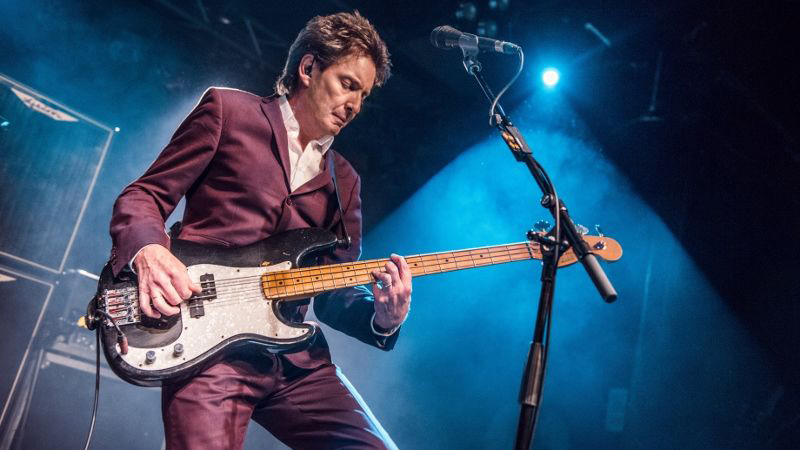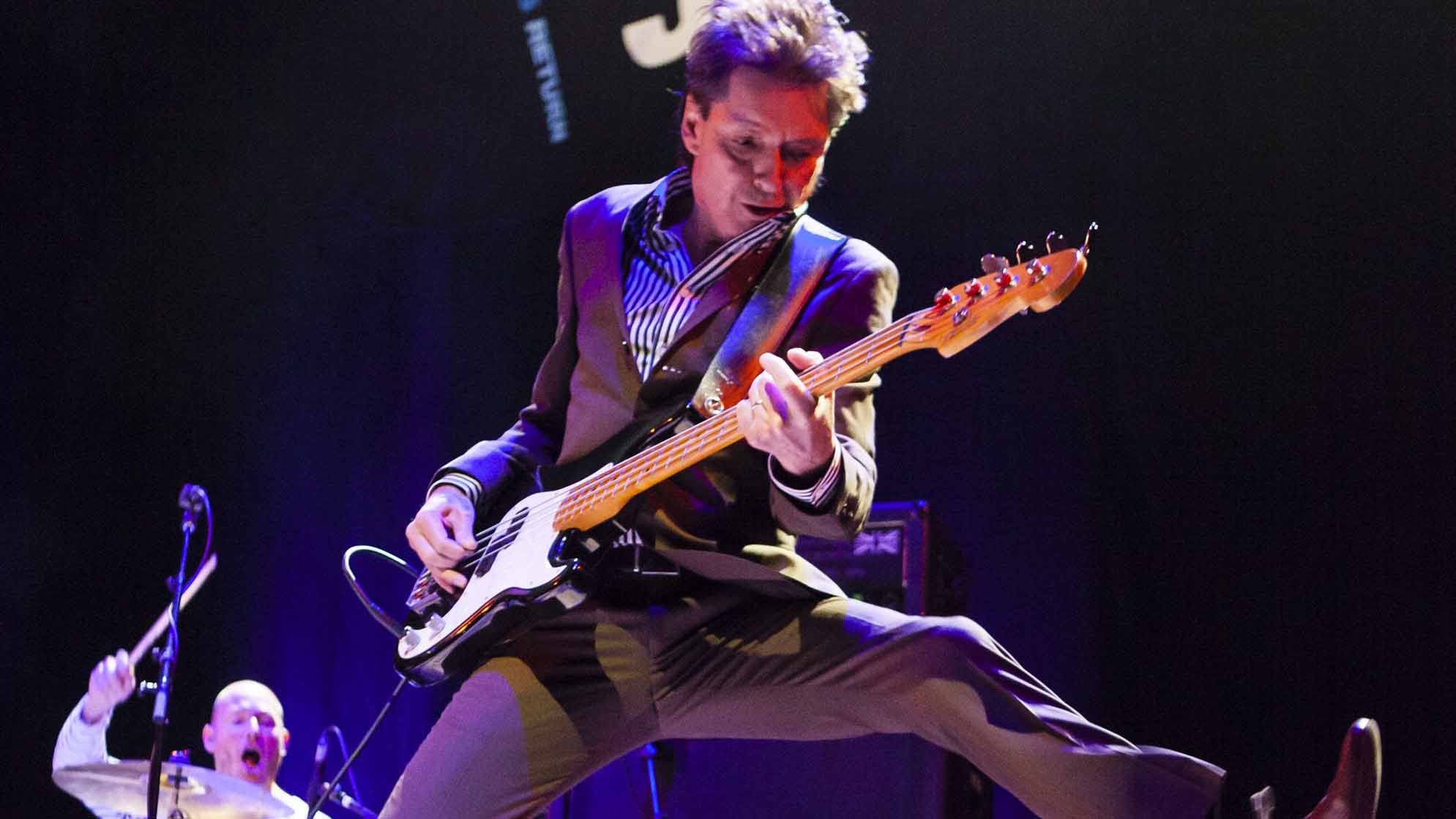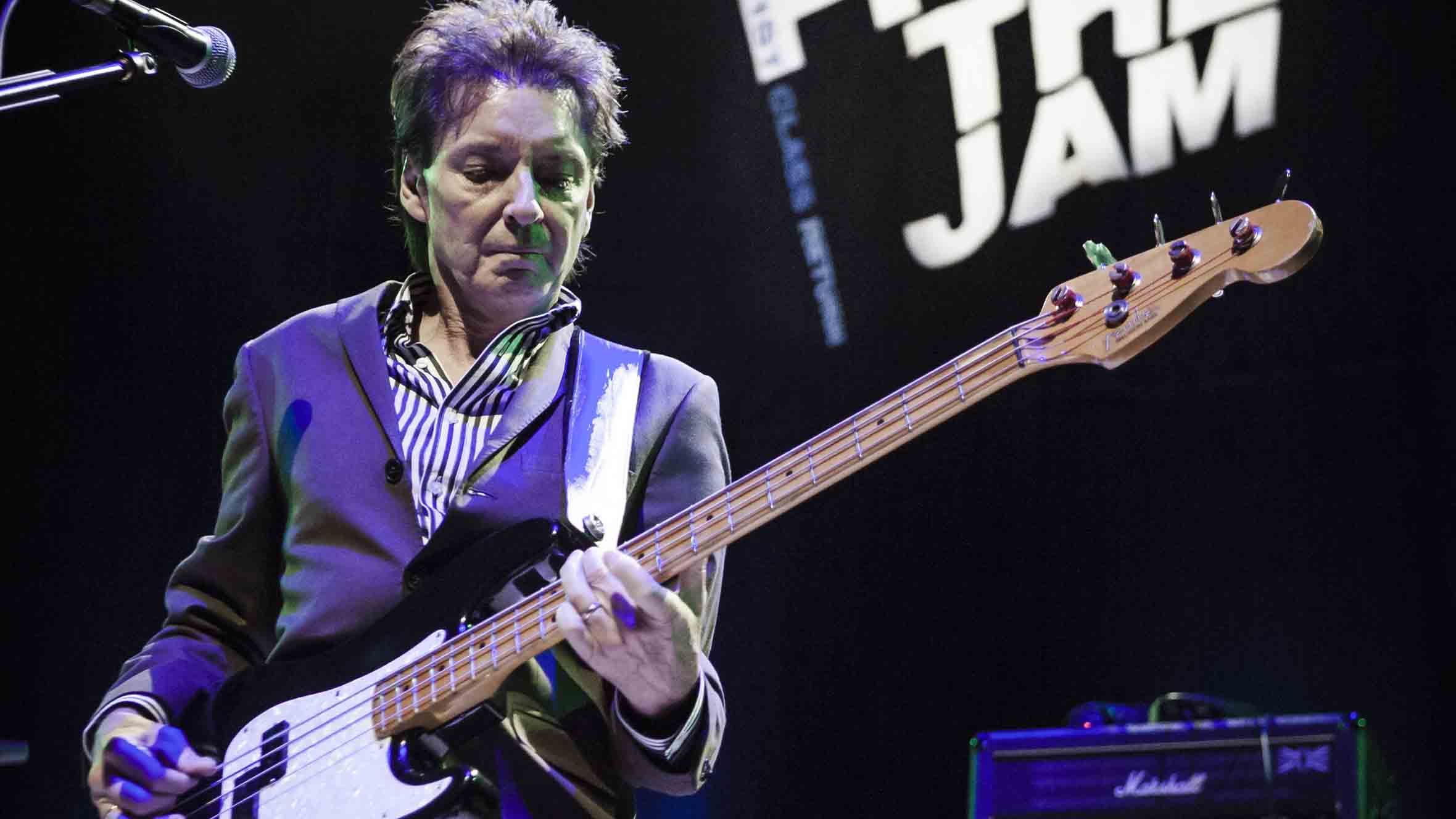Bruce Foxton's top 5 tips for bassists
Plus the ex-Jam legend on working with Paul Weller on Smash The Clock

Introduction: Stop The Clock
In May, ex-Jam bassist Bruce Foxton released his third solo album, Smash The Clock, which duly debuted at number 31 on the UK album charts, the legendary four-stringer’s first foray into the Top 40 since his days with the Paul Weller-led mod-rockers.
The long-player is a more-than-worthy follow-up to 2012’s Back In The Room, with the core of Foxton’s From The Jam touring outfit again involved in the studio and lead vocalist/guitarist Russell Hastings sharing writing duties.
Smash The Clock, which was recorded at Paul Weller’s Black Barn studios in Surrey, also features some killer harp-blowing courtesy of Paul Jones, a few suitably gnarly guitar lines from the inimitable Wilko Johnson and a smattering of piano and six-string overdubs from the Modfather himself.
Paul really just gets into it. He gave it 100 per cent and came up with some great ideas
“It was really an amazing honour to have those guys on the album,” enthuses Foxton. “Obviously, one of The Jam’s influences was Dr Feelgood, and Wilko came in and put down his trademark guitar on a couple of tracks and Paul Jones came in and did the same with his harmonica. It was just amazing sitting in the studio with those guys. It was excellent.
“Then, Paul [Weller] kindly came in and played on a couple of tracks. He put some nice piano on one of the songs and some backwards guitar on another. It was lovely just to hang out with him for a little bit and have a cup of coffee, a chat and a bit of a catch-up.
“Paul really just gets into it. He gave it 100 per cent and came up with some great ideas. We were all really pleased with how the songs were going, but when Paul put a guitar part on or a piano part on, it just lifted them again. It’s always lovely to see him, and it was a pleasure and an honour to have him on the album.”
How did Foxton and Hastings approach the writing and arranging of the album’s 13 tunes?
“We set out to try and write some melodic songs, and we tried to keep the old-fashioned single lengths, too, with times of two-and-a-half to three minutes,” Bruce explains.
“Normally, whenever Russ had a guitar riff or I had a bass riff, we just recorded them and sent them to each other on our iPhones. Then I’d just put any of Russ’s ideas onto my GarageBand and worked on them from there, trying to put them into some kind of arrangement structure. Then maybe Russ would pop up and we’d re-record things because we’d then have the guitar parts and bass parts worked out.
“We’d get the skeleton of it, I suppose, and then we’d go into Paul’s studio and we’d finalise the arrangements and build the songs with Mark Brzezicki on drums. We’re really proud of the results.”
Here, Bruce draws on his decades of experience to share his top 5 tips for bassists.
Smash The Clock is out now via Absolute.
Don't Miss

2. There's nothing wrong with citing your influences
“Don’t be ashamed if you sound like Paul McCartney or other great players! I don’t see the problem in that.
“I was heavily influenced by McCartney and [John] Entwistle and, if I was to be compared to McCartney and people said I sounded a bit McCartney-ish because of a melodic bassline, I would say, ‘Well, yeah, I am influenced by him, unashamedly!’ because I’ve always listened to McCartney a lot.”

3. Be patient
“Be patient with your playing but push yourself to be the best. It certainly didn’t happen overnight for me to get to where I am or where I was with The Jam. It was all about learning and trying different things, really, and being patient as I taught myself to play.
“Some people are very impatient. I’m actually very impatient and I don’t think I could ever teach the bass guitar… but, yeah, don’t sit down and think you’re going to sound like Entwistle or McCartney or maybe myself overnight. It’s taken a while to get to the level I’m at, you know?
“Believe in yourself. Don’t think, ‘Oh well, I’ve been in a band a week and nothing’s happened - it’s not going to happen!’ I think you’ve just got to believe in yourself and have a bit of patience there. As long as you hang in there, I think things will come good in the end.”

4. Find the right people to play with
“You should definitely try and be part of a band. You get a lot of people who just sit at home practising the bass and don’t actually get out of the house. The big part of being in a band is getting on with each other, isn’t it?
“It’s hard. You might well find someone you think is the greatest guitarist in the world, but if he’s an arsehole, you’re not going to want to play with him for too long! It takes a while to find the right people sometimes.
“With our band, we’re travelling up and down the motorway most of the day to be onstage for an hour-and-a-half, so you spend a lot of time in each other’s company. A big part of being in a band is getting on socially, let alone musically. You might all gel together as a band but, if you don’t like each other offstage, it’s going to be hard and it’s not going to be enjoyable. As far as I’m concerned, it should be creative and fun.”

5. Experiment and express yourself
“I was self-taught, basically, and everyone will be different with their approach depending on how they feel, but I think you just need to get into a rehearsal room with a few other guys and jam, really! Whatever you feel you’re playing, just jam and experiment a wee bit.
“I didn’t play safe and just play the root notes. I wanted to try and inject some melody into the songs, which hopefully I did achieve in the Jam, and I am achieving in what I’m doing now. It is difficult to give advice, I think, because it really depends on the individual and how committed they are and how far they want to go. There’s all of those kind of things that will influence your approach.”
